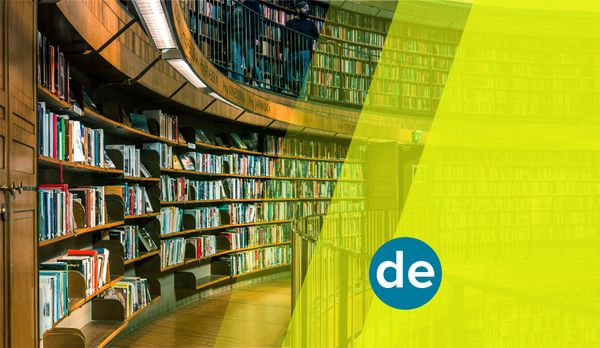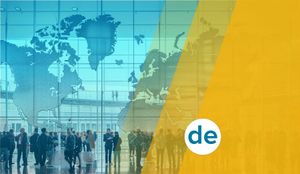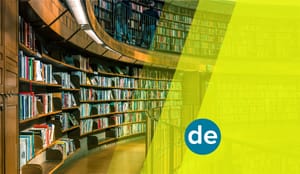Current Happenings in the Internet Governance Context in November 2023
Regulation in the Digital Space and Cyber Security
On 7 November 2023, UNESCO published guidelines for the regulation of Internet platforms. The "Guidelines for the governance of digital platforms" call on companies such as Meta, Google and TikTok to be more transparent, take measures against hate speech and disinformation and respect human rights. They are intended to strengthen critical thinking and lead to the formation of independent supervisory authorities. It is unclear whether the principles will result in a global UNESCO recommendation. In terms of content, they fall short of the EU DSA/DMA.
The debate on the regulation of artificial intelligence gained further momentum in November 2023. On 1 November, more than 30 governments, including the USA, China and the EU, agreed in the "Bletchley Declaration" to advocate a global approach to AI regulation. The London AI Summit will be continued with a follow-up event in Korea in 2024 and will then be held annually. On 18 November, Germany, Italy and France presented a paper on AI regulation in order to advance the EU trilogue on the "AI Act", which has come to a standstill. According to the paper, it is not primarily the technology that is to be regulated, but its application. At an AI conference organised by Sberbank in Moscow on 24 November, President Putin called for Russia to become a leading AI nation. There should be no bans on AI. The "West" should not be allowed a monopoly position.[Further information] On 29 November, the ITU announced the next AI World Summit for 30 and 31 May 2024 in Geneva.
On 17 November 2023, the 21 APEC members, including China and Russia, adopted a "Golden Gate Declaration" in San Francisco, in which they commit to an "enabling, inclusive, open, fair and non-discriminatory digital ecosystem for business and consumers". Coordinated topics such as "data privacy, cloud computing, telecommunications networks, interoperability, ICT security, digital trade, e-commerce, emerging technologies and governance for digital technology" are to be discussed as part of an "APEC Internet and Digital Economy Roadmap (AIDER)". On the sidelines of the meeting, the presidents of China and the USA, Xi and Biden, met and agreed on bilateral cooperation on artificial intelligence.
On 29 and 30 November 2023, the "Accra Call" was adopted in Ghana at the first world conference of the Hague-based "Global Forum on Cyber Expertise" (GFCE), which aims to strengthen cyber security, especially in developing countries. The 2nd conference on "Cyber Capacity Building" is planned for 2026.[7]
Starting Signal for WSIS+20
On 8 and 9 November 2023, the UN Commission on Science and Technology Development (UNCSTD) kicked off preparations for the review conference of the UN World Summit on the Information Society (WSIS+20) planned for 2025 at its Intersessional Panel in Lisbon. The panel discussed how the Global Digital Compact (GDC) can be integrated into the preparations for WSIS+20. The IGF, whose mandate expires in 2025, was planned to be tasked with implementing the GDC. In the long term, the 16 action lines of the WSIS process and the UN's 16 Sustainable Development Goals (SDGs) were to be linked and should merge into Comprehensive Development Goals (CDGs) for the period 2030 - 2045. At the same time, consultations have begun under the leadership of Germany and Namibia on the UN Summit of the Future planned for September 2024, during which the GDC is to be adopted.
Stakeholder Meetings
The tenth World Internet Conference (WIC) took place in Wuzhen on 8 and 9 November 2023. Launched in 2014 after the Snowden revelations with great political ambitions and an Internet keynote speech by President Xi Jinping, the conference has lost much of its political significance since COVID-19. No outstanding international Internet experts were on the list of speakers. WIC 2023 was primarily a "trade show" for Chinese Internet companies. WIC is organised by the Cyber Administration of China (CAC) and reports directly to President Xi. WIC was institutionalised as an NGO in the summer of 2022. It is unclear whether the World Advisory Council (WAC), formerly headed by Jack Ma and Fadi Chehadé, is still playing a role. [Further information]
The Lisbon "Web Summit" once again attracted more than 70,000 participants from 11 to 14 November. Under the new leadership of Katherine Maher, however, the summit has become more of a "roadshow" for start-ups. While several EU commissioners formerly used to take part in the summit, this time there were no political celebrities. [11]
Digital Divide
The ITU lamented the slow pace of overcoming the digital divide in its annual report "Facts and Figures" on 28 November 2023. According to the report 2.6 billion, i.e. a third of humanity, are still offline. There are major disparities in broadband coverage. The "education gap" means that where people have access to the Internet, the potential for digital services is often not utilised.[12]
















